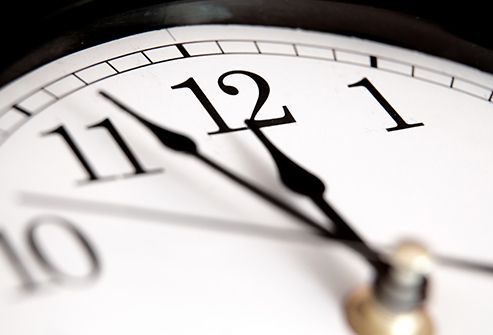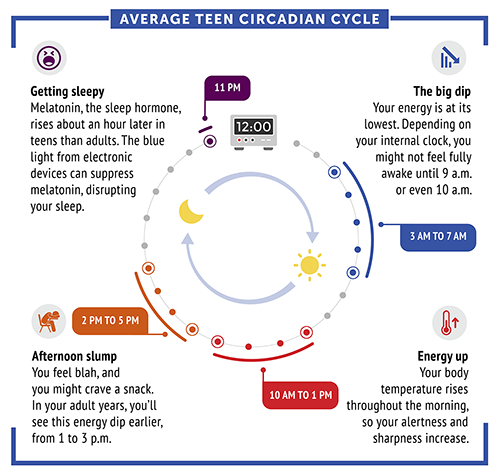By Freeha Anjum
If you’re a student in STEM, you’ve likely read about the best ways to take notes, or maybe you’ve looked into active recall as well – but there are lots of factors that go into studying, and I doubt you’ve ever had them all laid out for you in one place… until now! In this article, we’ll be overviewing the many factors that affect your studying, and how to reach that optimum point in the battle to “study smarter, not harder.”
Note: This is part one of a two-part article series.
Good News: Coffee Helps
Caffeine binds to adenosine receptors in the brain, causing the nerves to increase activity and create a sense of urgency in the pituitary gland. This prompts the production of adrenaline, which increases heart rate, blood pressure, and blood sugar for energy.
So what does that mean for your study habits? Studies show that drinking coffee in small increments throughout the day (so that you still have that adrenaline rush, but not to an extreme extent, which may make it harder to study) can have a variety of benefits to your studying, including:
- Increasing focus: caffeine can keep you focussed on the task at hand, so distractions will be less of a possibility for you.
- Enhancing memory: studies show caffeine enhances memory, particularly within the 24-hour period, so drinking coffee while you study can help you retain more information.
- Increasing alertness: as mentioned before, caffeine provides your body with more energy, making you less tired and more alert. This means you can stay up through a long lecture or while reading a long textbook chapter.
- Enhancing mood: caffeine increases dopamine levels in the brain when consumed, resulting in a rewarding feeling and thereby enhancing your mood and making you feel like studying isn’t such a bad thing!
With that said, different people may react differently to caffeine (eg. some may have coffee crashes a couple hours after drinking coffee), and you should take the time to realize how you react to caffeine before relying on it entirely for your studying in the coming years.
Brain Teasers
You probably know brain teasers are important, but how do they directly link to studying? Well, many cognitive abilities that brain teasers enhance (memory, concentration, stress, etc) are skills you utilize for studying as well. That means regularly engaging in brain teasers will come to aid when you’re studying, but of course there are hundreds of brain teasers out there – below are a few apps that you can use every day to keep your cognitive functions sharp, and in turn make studying easier!
- Lumosity: this app includes a variety of games that you can play every day – they may seem like computer games, but they’re actually exercising your brain more than you think! The app also helps you set goals and reminds you when you haven’t done your daily brain teasers.
- CogniFit Brain Fitness: enjoy brain teasers that are created by neuroscientists! This app gives you games that fit your profile after asking a series of questions, and you can then track your progress and learn about your overall brain health.
- Brain Trainer Special: this app is similar to lumosity, and contains many memory-based games – you can start off easy, and work your way to a higher difficulty level!
- Fit Brains Trainer: this app includes over 360 different puzzles for your brain. As you improve your skills, this app will improve with you by giving you harder problems to solve.
These are just a few apps that can yield positive results in your learning overtime. Additionally, it’s important to think positively when it comes to working: negative thinking will make studying harder, as you may have noticed from your own experiences. Below are a couple brain teaser apps that work towards improving mood:
- Personal Zen: follow different characters through a field to help relieve anxiety and focus on the positive. This game was invented by researchers from Hunter College and the City University of New York to help users find the silver lining of bad situations.
- Happify: using the fundamentals of positive psychology, this app trains your brain to be happier through a series of games to help cope with stress and focus on gratitude.
When Should I Study?
Studies show that the time of day you choose to study school material will affect the effectiveness of your studying. So when’s the best time for you to study in order for you to be the most productive with your time?
Firstly, let’s explore what sleep has to do with studying: research shows that sleep affects learning and memory – that is, someone who’s sleep deprived will be unable to concentrate optimally. Although it’s uncertain exactly how sleep affects our studying, research shows that it plays a part in consolidation – a step in the process of learning in which memory becomes more stable – by strengthening neural connections. This means that getting a good night’s sleep after you study will help you retain the information from the night before. So in addition to sleep deprivation making it harder for our bodies to focus, make connections, and process information, it also makes it so that we are unable to remember the information we learned while studying the previous day. In other words, there’s little point in studying if you’re not getting enough sleep with it. That means if your usual schedule is to study all night, sleep for a couple hours, and then take your exam… it’s a waste of time.
In addition to understanding the importance of sleep, it’s crucial to understand your circadian rhythm before moving onto what the best time of day to study is. A circadian rhythm is your body’s physical and mental changes that you experience within a 24-hour period: this includes being tired at night, and awake during the day, as well as when you feel the most energized, etc. It’s important to note that each individual has a different circadian rhythm – below is the cycle of the average teenager:
According to the above cycle, the optimal time for a teenager to study would be between 10am to 2pm, when their energy levels are at their highest. This isn’t the case for all students however, and differs in most adults as well. Some students find they follow this cycle with slight variations and some find that they are almost entirely the opposite of this cycle. No matter which type of person you are (morning, afternoon, evening, night), there will still be an optimal time for you to study in the day. It’s best that you identify the time that fits you – as everyone is different – and use that time to your advantage. Studying in the morning can be beneficial because the natural light will keep you up and (for some) you’ll feel refreshed. It also helps to know that if your studying takes longer than planned, you’ll have the rest of the day to use if need be. Night studying, on the other hand, can make it easier for you to focus because the day is behind you, and there is likely less noise in your household at this time. Additionally, you’ll go right to bed after studying – which means a higher chance of retaining the new information. Either way, studying at the time when you have the most energy will make the process much more efficient.
Don’t Forget…
These tips don’t work for everyone–every brain is different so don’t be afraid to take some time to see which strategies work best for you! The purpose of this article is to point out study habits that have been scientifically proven to give you a place to start, but effort and experimentation will still be needed on your part to ensure that you can optimize your studying.
Sources
Building, E. (2018, June 28). The Benefits of Brain Teasers & Puzzles. Retrieved January 10, 2021, from https://www.escape-london.co.uk/news/2018/6/28/the-benefits-of-brain-teasers-puzzles
Caffeine: Is it Good or Bad for Studying? (2020, March 23). Retrieved January 10, 2021, from https://accounting.uworld.com/blog/cpa-review/caffeine-it-good-or-bad-studying/
Circadian Rhythms. (n.d.). Retrieved January 10, 2021, from https://www.nigms.nih.gov/education/fact-sheets/Pages/circadian-rhythms.aspx
Is Caffeine Good or Bad for Studying?: Independence University. (n.d.). Retrieved January 10, 2021, from https://www.independence.edu/blog/is-caffeine-affecting-your-study
Kowalski, K. (2020, September 04). Top 10 tips on how to study smarter, not longer. Retrieved January 10, 2021, from https://www.sciencenewsforstudents.org/article/top-10-tips-study-smarter-not-longer-study-skills
Morales, W. (2020, April 29). Benefits of Brain Teasers. Retrieved January 10, 2021, from https://www.angelopouloscgiu.org/why-are-brain-teasers-good-for-your-brain/
Santanachote, P. (2016, July 14). 10 Best Apps to Train Your Brain. Retrieved January 10, 2021, from https://dailyburn.com/life/tech/train-your-brain-apps/
Science-based tips on how to study for exams more effectively | CBC News. (2016, December 23). Retrieved January 10, 2021, from https://www.cbc.ca/news/technology/exams-studying-tips-brain-science-1.3864360
Sleep, Learning, and Memory. (n.d.). Retrieved January 10, 2021, from http://healthysleep.med.harvard.edu/healthy/matters/benefits-of-sleep/learning-memory
When is the Best Time to Study: Day or Night? (2020, July 18). Retrieved January 10, 2021, from https://www.icaneducation.ca/when-is-the-best-time-to-study-day-or-night/
When is the Best Time to Study: Morning, Noon or Night? (n.d.). Retrieved January 10, 2021, from https://www.psb-academy.edu.sg/blog/best-time-to-study
Images:
https://www.nigms.nih.gov/education/fact-sheets/Pages/circadian-rhythms.aspx
https://www.webmd.com/sleep-disorders/ss/slideshow-body-clock
https://www.rd.com/list/brainteasers-national-puzzle-day/
https://www.campuswell.com/5-study-methods-that-actually-work/
https://www.womenshealthmag.com/health/g27045304/best-sleep-apps/











